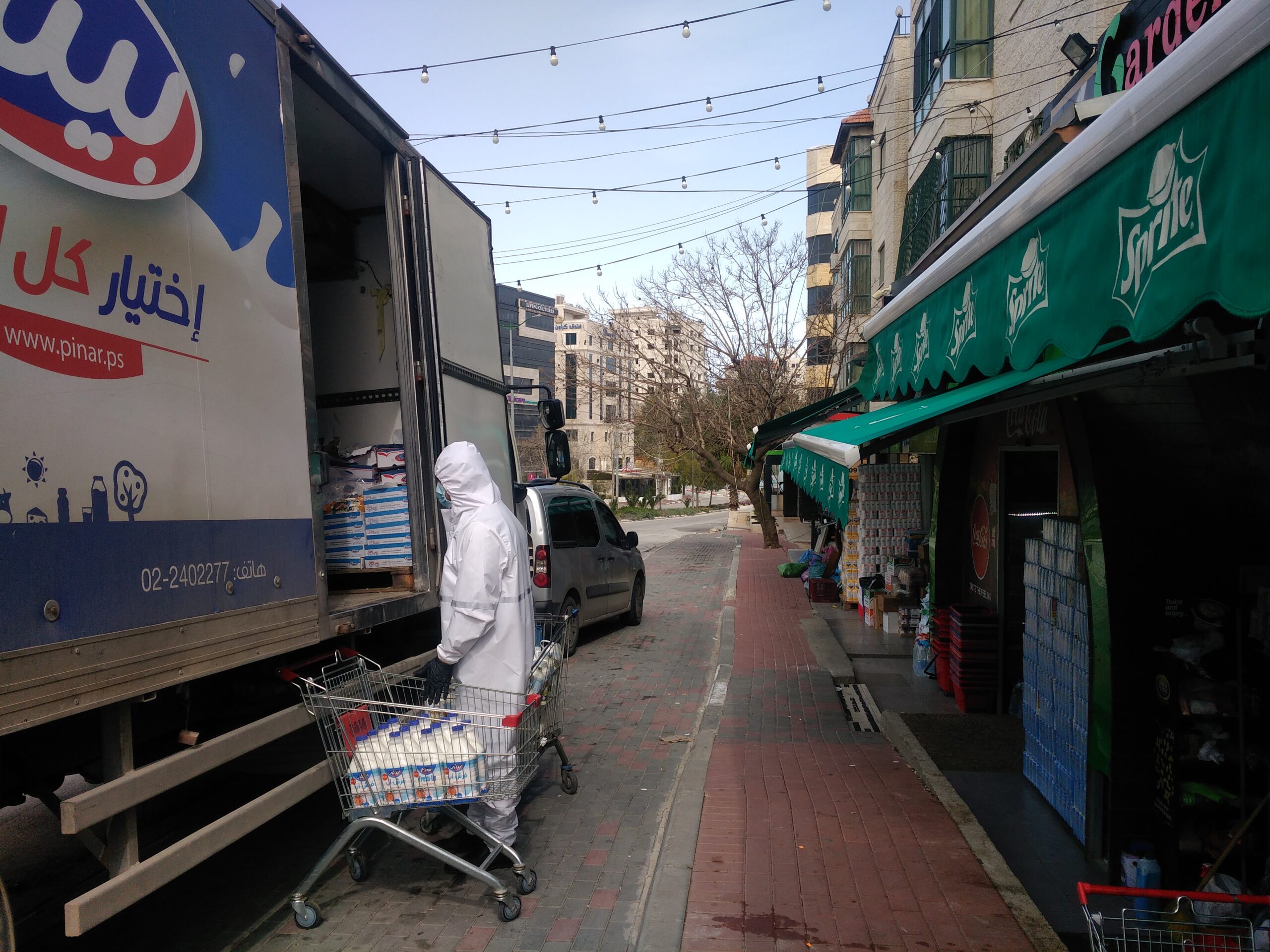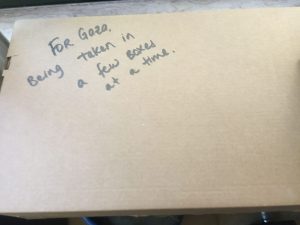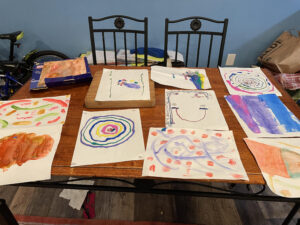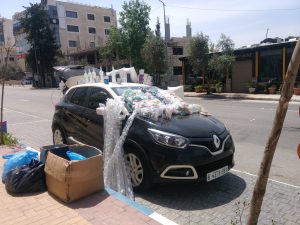In Palestine, people believed basic goods would remain available, despite the coronavirus – and so they did. Mistrust of the authorities and faith limit precautions
On March 23, the first day of the curfew in the West Bank, I went for a morning run in the western edge of the city of Ramallah. The Palestinian Authority had banned people from leaving home, except for essential work or to buy food or medicine. I hoped that running was allowed. Or that the police cars patrolling the main streets wouldn’t see me.
It was quiet. Here and there, a car drove by. Stray dogs slept in the street. I saw a woman standing in the front yard of her home, dressed in a bathrobe and smoking a cigarette. I smiled at her as if we were best friends who hadn’t seen each other for years. “It’s good to see someone,” I said apologetically, and she laughed.
Construction sites that had operated the day before were still. In one of the half-finished apartment buildings, a worker appeared in the window. I waved to him from below. He said he was from Haris, a village in the northern West Bank near Salfit, where one of the corona cases had been discovered. “I’ll sleep here until we can go back to work,” he said.
At the end of the run, I went to the supermarket to buy milk. Two men, dressed in white protective suits and blue masks, unloaded flats of yogurt from a truck. The shelves were well-stocked. At a pharmacy near our house I even found liquid hand sanitizer. For some reason, in Palestine, people believed that basic goods would remain available – and so they remained available.
At home, Osama shut himself in a room to teach courses to his students virtually. Forat, dressed in a Wonder Woman costume, cut a spool of purple yarn into strips and distributed them in ten bowls she had set up in the living room.
“Lunch, children!” she called to the stuffed animals sitting in front of each bowl. Her brother Adam raced to bring his giant red bear and sat him in front of one of the plates. “Teddy! Poon!” He said in Hebrew. Apparently Teddy likes to eat his purple spaghetti with a spoon.
In the afternoon, we went out to our garden. The neighbors’ children called to us from the apartment above. Their mother entered the balcony without a hijab covering her hair, as if all the rules were different now.
“Umm Forat,” she called. “Can Mohammed and Sama come down?” A week before, I was begging her for playdates, hoping it would let me work. But at that point, I felt collective responsibility. If the virus spreads here, the hospitals will collapse.
“I’m sorry,” I told her, and she nodded and said, “Better that way.”
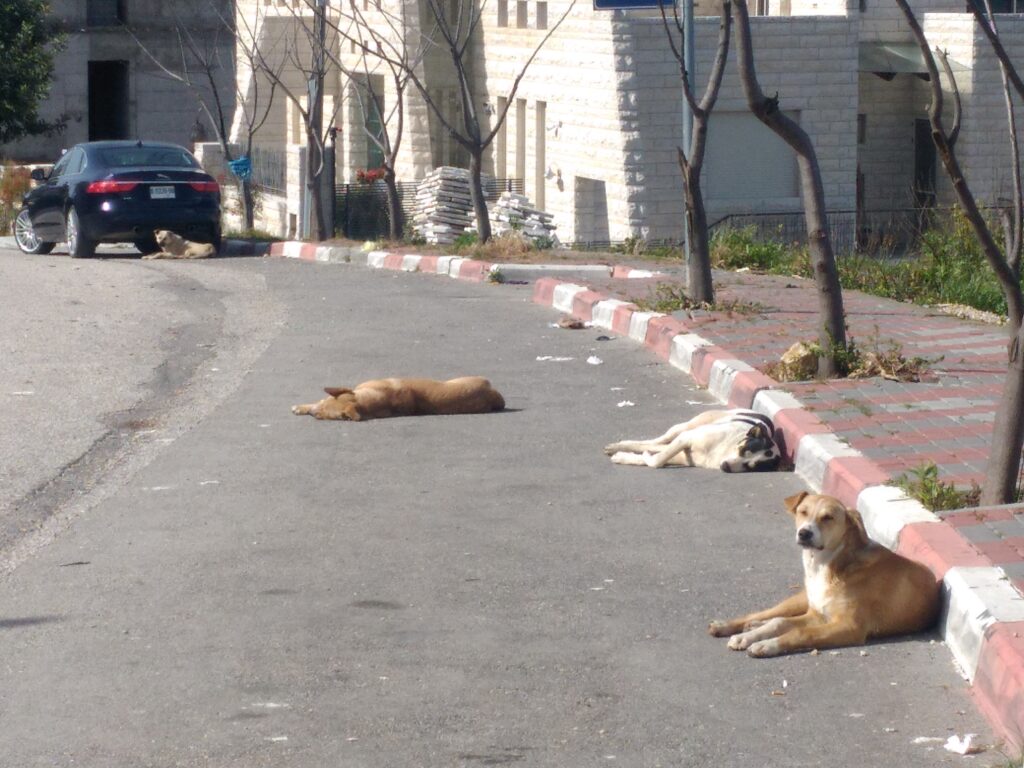
Osama finished teaching and called his family in the Gaza Strip, where the first two corona virus cases were diagnosed this week.
“Mama, do you have fever?” he asked. His 82-year old mother had continued visiting neighbors in the Jabalia refugee camps, including neighbors who had returned last month from the Umrah, the pilgrimage in Saudi Arabia. Now she was coughing.
“They’re not convinced that the virus will reach them,” Osama told me after he finished talking to his sister and older brother in Gaza as well. “Like that guy from Salfit who came back from Pakistan. Instead of going into isolation, when he got home, the neighbors came to welcome him. And then the Health Ministry tested him and found he was positive.”
“People don’t understand?” I asked.
“They understand very well, but they think differently,” Osama said. Beyond mistrust of the authorities – Israeli and Palestinian – religion plays a role for some. “Ili maktub, maktub,” I said to Osama and added: “Kulshi min Allah.” What is written, is written. Everything comes from God.
“Maybe the curfew will help,” Osama said.
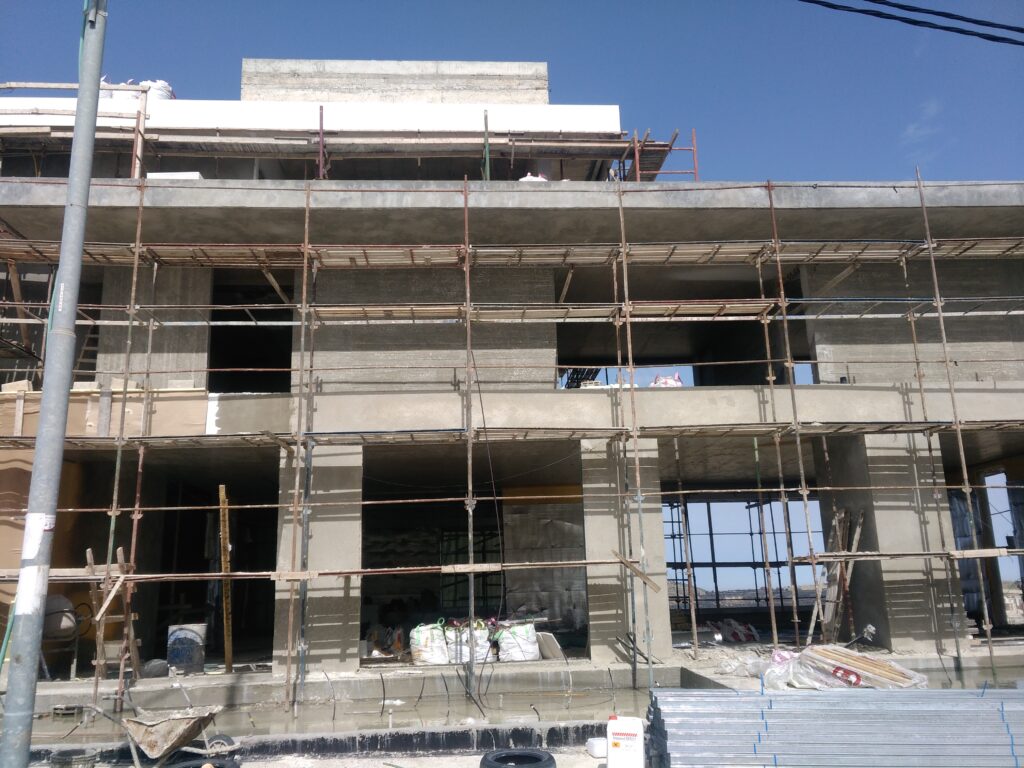
The mother of Yamen, Forat’s friend from kindergarten, called me, anxious: She doesn’t have time to even open the online lessons that Miss Chantal is emailing us, and how do they expect working parents to teach their children, and when Yamen goes back to kindergarten, she will lag behind the other children whose mothers don’t work and also – do we still need to pay tuition, even though there’s no school?
Our friend Hala called to ask if we wanted to hire her cousin as a babysitter. The cousin had come from Gaza as a companion for someone seeking medical care in the West Bank: “Her son was the only one in the family working, and he was making fifteen shekels ($4 U.S.) a day. Now that has ended, too,” Hala said. The thought of a babysitter was tempting, especially because I didn’t think the schools would resume before summer. “Maybe in two weeks, when the curfew ends,” I told her. If it ends.
It was two weeks before Passover. Last week, before they closed the Qalandia checkpoint between Ramallah/Al Bireh and Jerusalem, I went to Jerusalem to withdraw money from the bank and to buy kosher chicken. The supermarket hadn’t yet gotten its shipment of matzot, the traditional unleavened holiday bread. I would have to improvise something at home.
I wondered which of the new travel restrictions would be lifted when the threat of the virus ended and which would become permanent, as the Israeli authorities had done in the past. The separation barrier and the ban on Palestinians entering Israeli settlements had also been temporary responses to the Second Intifada of 2000, but they were never removed. I was sure Israel re-open the Qalandia Crossing, from which Palestinian workers and others enter Jerusalem, but I didn’t know if they would cancel the ban imposed this month on Israelis entering Area B of the West Bank, where Palestinian towns and villages are, or if they would renew the minimal travel they had allowed between Israel and Gaza. My world was shrinking, to West Bank, to the Ramallah area, and to our apartment, in which Forat celebrated each day we allowed her to remain in pajamas, and every twenty minutes I had to stop the children from hitting each other.
Adam ran to me. “Ima, wein auto blue?” he asked. “Where is the blue car?”, but in Arabic, Hebrew and English together. I started to look for it and then realized he was making a joke.
“Here it is!” He waved the toy car he had hid under the carpet, ecstatic and checking my reaction.
“Wow!” I laughed with him. I worried about my mother, closed up in her apartment in New York City, and about Osama’s mother, who was not closed up in her apartment in the Gaza Strip. I also felt immense gratitude that the children, Osama and I were not in any risk group, that we have a garden, and that I love my three partners in this closure.
This post was also published at haaretz.com on March 26, 2020:
